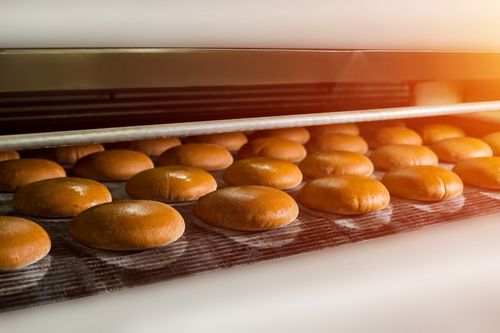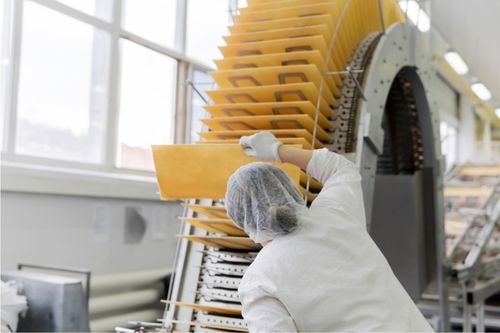Table of Contents
People have made a living as bakers for over 4,000 years. Bakeries have traditionally provided essential foods to aid in feeding the world, and the tradition continues to this day. Today’s bakeries are high-tech operations with complex equipment, formulations, organization, and products. The industry has grown to include allied companies that sell everything from bakery ingredients and flavors to mixes and equipment. Keep reading to learn about Bakery Science and Management and how it can benefit you.
What is Bakery Science and Management?

Bakery Science is more complicated than its name implies. If you major in it, you’ll learn about the intricate chemical processes of baking almost anything. You’ll learn about manufacturing processes, ingredient functions, and nutrition. This new knowledge will be helpful as you work on developing new baked products and honing your baking skills in your university’s Bakery Science laboratories.
A Bakery Science major will also study the business of baking. You will research government regulations governing food products and production. It will cover Management and other business concepts. You will investigate economic trends and changes that may impact your career. You’ll also learn the maintenance and engineering skills required to run your successful bakery.
What are the course subjects?
Baking is a highly technical skill, and having one will make you very appealing to employers. This course will teach you the commercial and technological aspects of the baking profession, preparing you to become a specialist manager. Here are the course subjects.
Under Cereal Chemistry
Fall semester
| Credit hours | Subject |
| 4 | BIOL 198- Principles of Biology |
| 4 | CHEM 210- Chemistry I |
| 2 | COMM 105- Public Speaking |
| 1 | GRSC 100- GSI Orientation |
| 3 | GRSC 101 – Intro to GSI |
Spring semester
| Credit hours | Subject |
| 4 | CHEM 230- Chemistry I |
| 3 | ECON 110- Principles of Macroeconomics |
| 3 | ENGL 100- Expository Writing |
| 3 | GRSC 150- Principles of Milling |
| 4 | MATH 220- Analytic Geometry and Calculus I |
Sophmore
Fall semester
| Credit hours | Subject |
| 4 | BIOL 455- General Microbiology |
| 3 | CHM 531- Organic Chemistry I |
| 4 | MATH 221- Analytic Geometry and Calculus II |
| 3 | ENGL 200- Expos II |
| 3 | Free electives |
What is Bakery Management?
Bakery management encompasses all activities aimed at overseeing bakery operations. It may include, but is not limited to, the ten macro-processes listed below-
- Production planning and demand forecasting.
- Raw materials and ingredients supply.
- Production management.
- Engineering and maintenance.
- Plant personnel management.
- Continuous improvement.
- Quality assurance.
- Plant sanitation.
- Plant economics control, overall plant operation, and financial reports.
- Support and strategic areas (R&D, bakery formulations).
When sales increase and operations become more complex, proper bakery management becomes critical. As a bakery grows, more tools are required to control costs, optimize equipment usage, obtain better prices due to higher volumes, and so on.
When it’s time to make a significant change, bakery managers frequently employ consultants to lay the groundwork and create the necessary macro-processes, such as those mentioned above, that allow the bakery to take control of plant operations to a new level.
As bakery operations become more complex and large, it is critical to keep things simple and practical.
Career
Here are a few career prospects after Bakery Science and Management
Technical Sales Representative
Technical Sales Representatives promote and sell an organization’s technical or scientific products. They determine the customer’s needs, promote relevant products, and demonstrate how the products work.
Production Supervisor
The job involves communicating job expectations, planning, monitoring, and appraising job results. Also, by coaching, counseling, disciplining employees, and initiating, coordinating, and enforcing systems, policies, and procedures. The manufacturing manager achieves results after performing the above duties.
Baking Technologist

A Baking Technologist is responsible for baking products, ensuring consistency and quality while adhering to defined SOPs and leveraging their ability to operate ovens in sync with the proof box/rest of the plant/unit.
Quality Control Supervisor
Supervisors of quality control (QC) are in charge of all aspects of quality control in an organization. They are in charge of the quality control department, which includes all personnel and policies.
New Product Development Researcher
Product development research determines how the product or feature you’re currently working on is progressing, whether your target audience’s needs have changed, and whether you need to make any changes to the product.
Quality Assurance Technician
Through Quality Line Audits, ensuring that all products are manufactured following the specifications and HACCP plan. Assist production in avoiding food safety issues and report any quality or food safety issues to management.
Bakery manager
Bakery managers supervise baking staff and ensure the smooth operation of all bakery operations. They look after the inventory baking supplies, handle customer complaints, and address poor employee performance. They also ensure that all bakery items and food in a bakery are fresh. The bakery manager needs to maintain the bakery’s cleanliness and hygiene. Greet customers and serve high-quality food.
Key takeaways
- You’ll learn about the complex chemical processes involved in baking almost anything. Manufacturing processes, ingredient functions, and nutrition will all be covered.
- Baking is a highly technical skill that will make you very appealing to prospective employers. This course will teach you the business and technological elements of the baking industry.
- More tools are required as a bakery grows to control costs, optimize equipment usage, obtain better prices due to higher volumes, and so on.
- There are many career prospects, such as Technical Sales Representative, Production Supervisor, Baking Technologist, Quality Assurance Technician, and Bakery Manager.
Did you find this blog informative? Please let us know your thoughts and views in the comments below. Click here to contact us for more information on Bakery Science and Management. We would be happy to assist you with your queries.
Liked this blog? Read next: Hotel Management Course | Pursue these top courses
FAQs
Q1. What is baking Science and technology?
Answer- Baking Science and Technology (BST) combines baking theory and science with practical applications (40% theory; 60% practical), allowing students to gain the knowledge and skills required to become high-performing baking technologists.
Q2. What science is used in baking?
Answer- Chemistry, as you combine various edible chemicals to make dough or batter with tiny air bubbles trapped within. Biology, as yeast culture, provides the carbon dioxide to cause your bread to rise. And physics, as those trapped gases expand and cause the bakes to rise.
Q3. Why do you use Math in bakery?
Answer- Many aspects of cooking and baking involve math, such as converting temperatures from Celsius to Fahrenheit (and vice versa), changing the quantities of ingredients specified in a recipe, and calculating cooking times based on weight.







